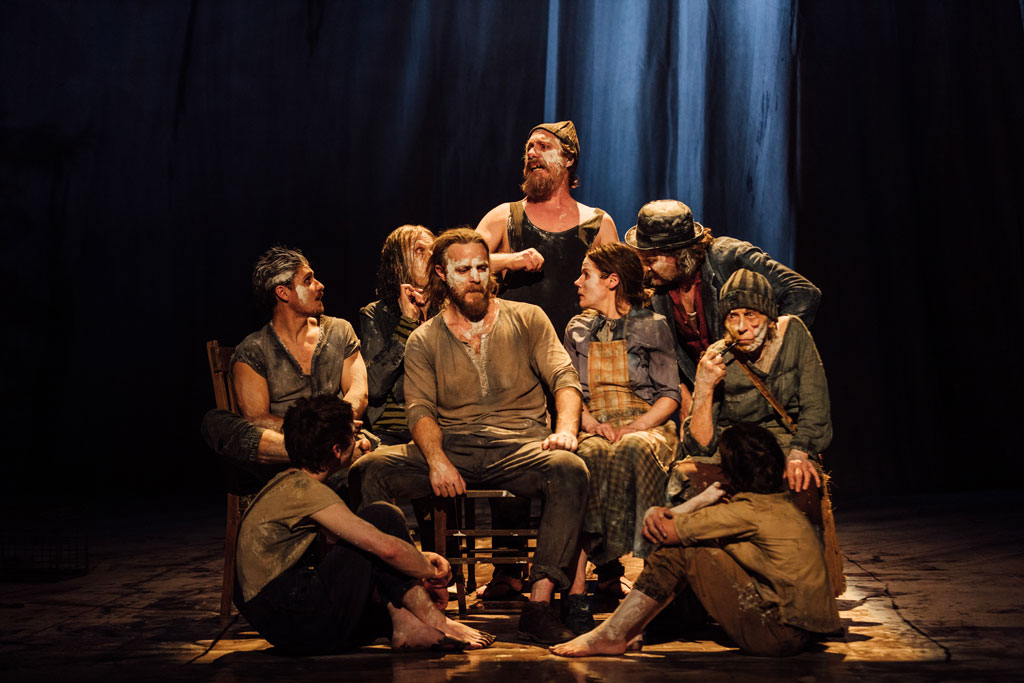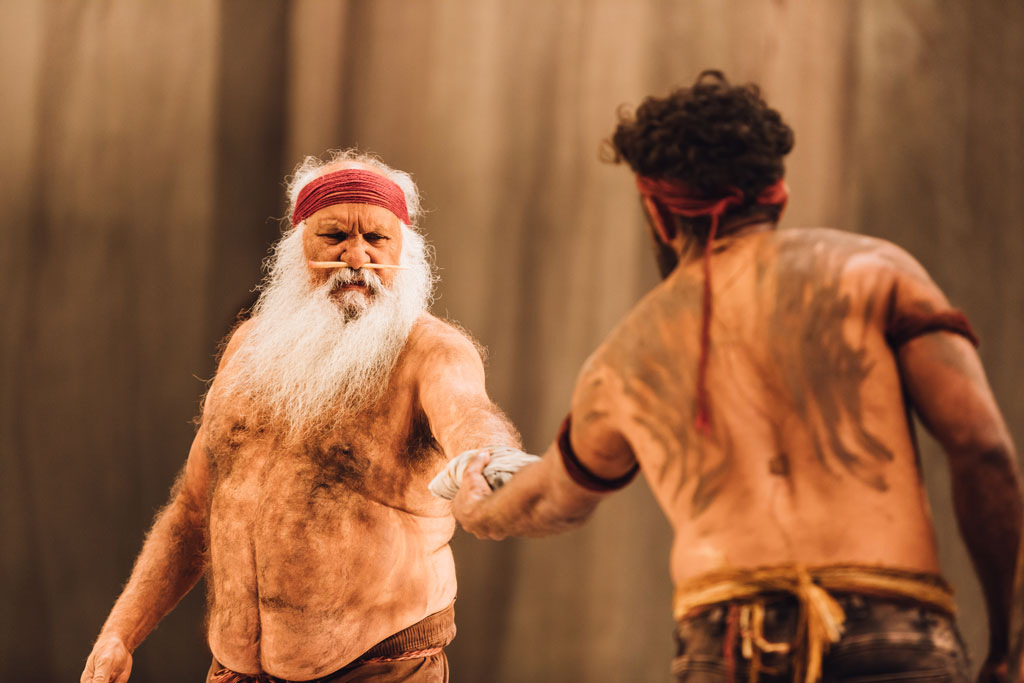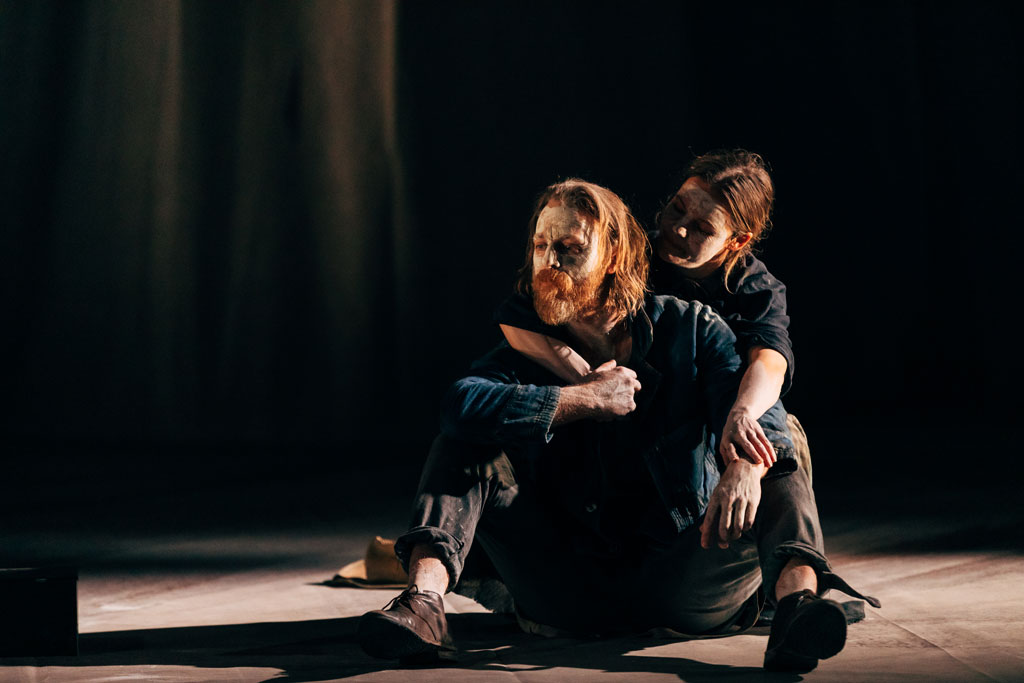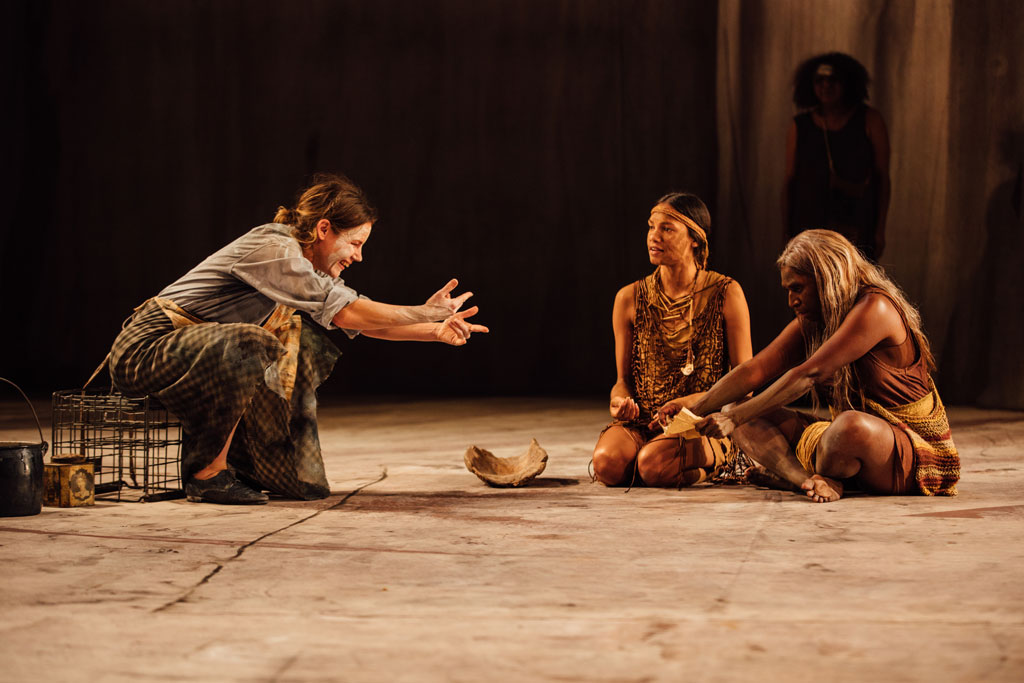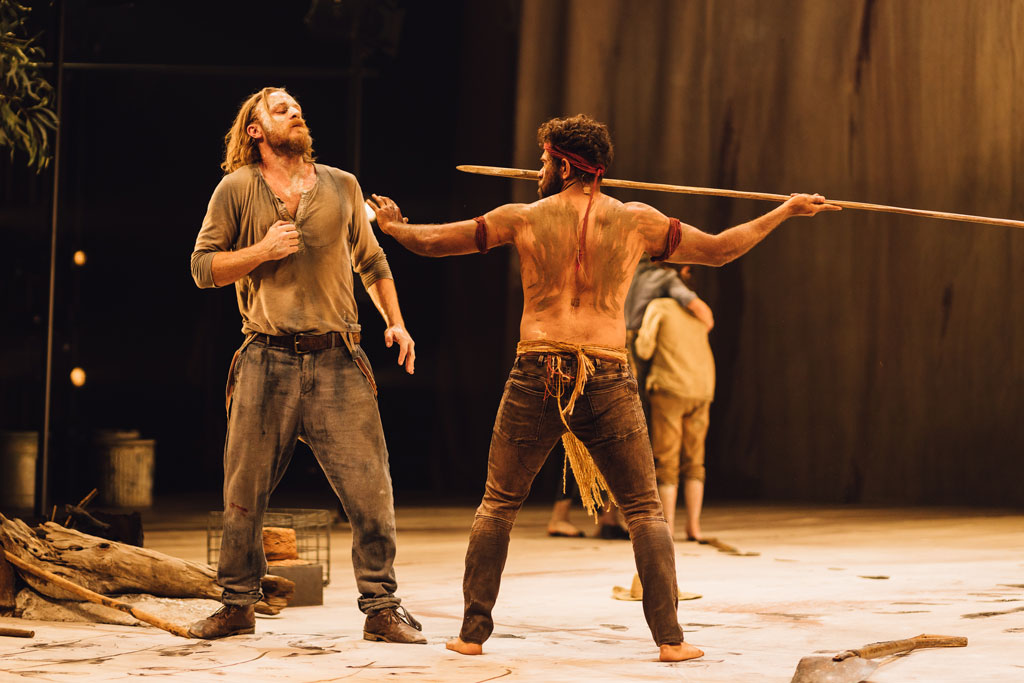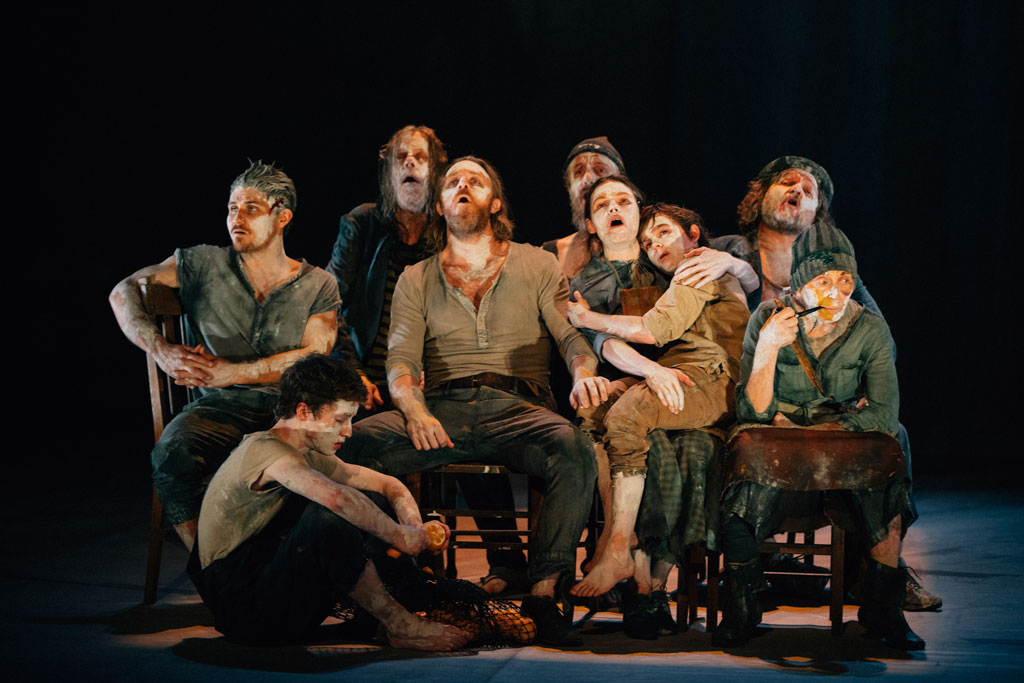Review: The Secret River
Australia's compelling history comes to life in this magical award-winning production
This post may contain affiliate links. Learn more
The Secret River explores the cultural collisions of colonialism and thoughts of restitution, writes Caroline Phillips
It’s not often that a director stands on stage at the Olivier Theatre and explains, his voice trembling, that this performance, the opening night, will be a memorial to a leading member of the cast. That Ningali Lawford-Wolf died unexpectedly at the end of the company’s Edinburgh Festival run. And that her big role has been taken over in six days by another actress, Pauline Whyman, who will, says director Neil Armfield, read her part in The Secret River.
Ningali was one of Australia’s finest performing artists. She died suddenly, aged 52, on tour. The cast is still reeling from the trauma. But the company has decided, in tribute to her, says the director, that the show must go on.
The Secret River is A Sydney Theatre Company production based on the book by Kate Grenville and adapted for stage by Andrew Bovell. (It was the first work commissioned by Cate Blanchett and her husband, Andrew Upton, on taking over the company in 2008). This multi-award winning book and play is a saga about the clash between the Dharug people of what is now Western Sydney and its 19th Century colonial settlers.
The play begins with simple whistling, imitating bird-songheard in the Australian outback, blending into real birdsong. Then we see Aboriginals clustered around a fire.
Soon we meet William Thornhill (played with gusto by Nathaniel Dean) — a man born into poverty and the slums in late 18th Century London. William – now in the colony of New South Wales where he has earned his freedom after serving his sentence for petty theft — is with his doting wife Sal (delivered in a sympathetic, determined performance by Georgia Adamson) and their two young children.
William, a former Thames boatman, has dreamed of starting a new life and owning a patch of land (100 acres) on the Hawkesbury River. He takes the land…but it turns out that it is not his to take. It is owned and occupied by the Dharug people. To them the river isn’t the Hawkesbury, it’s the Dhirrumbin. And thus the conflict begins, taking place on a bare stage against a bare cliff backdrop and some eucalyptus trees.
William plants crops and dreams of a full stomach and riches, and dutiful Sal chalks up days like a prisoner, sings nursery songs of London whilst fantasising about making enough money to return home…meanwhile the First Nations people, the indigenous folk, have an intricate spiritual connection to this, their land: a tie less of ownership than stewardship, custodianship and songlines (the ancient story lines that cross the country).
It’s a land that William thinks belongs to him, whilst the First Nations claim it as theirs. There are moments of hope that things will turn out OK when the children play together and when we see that one white settler lives in secret with a “better” (black) wife than he says he had back home. But, overall, it’s not going to end well.
Over the course of nearly three hours of this saga, our attention doesn’t wander. The tensions rise and the atmosphere is laden with sinister undertones as William’s attachment to ‘his’ land increases. Will their children be safe? Is Sal going to be raped by a thuggish white settler, as one white ominously intimates? It’s better being poor than dead, in Sal’s view. “That’s where we disagree,” replies William. He won’t leave the land even when a native woman has saved Sal’s life and asks him to go.
The first act of this tragedy ends (in a scene that is reminiscent of the Nazis trying to out-sing the French in Rick’s Café in Casablanca) with the Aboriginals chanting their soulful, haunting songs and the Brits concurrently beating out theirs. (The scores play a pivotal part in this production. At one point, the mourning song of the Dharugs about their native land is ironically juxtaposed with Sal singing an English nursery rhyme.) There’s an awful inevitability that, ultimately, the men with guns will win over those with spears…. unless, well, unless the blacks spear the whites first in this lawless zone.
There are some memorable characters: Yalamundi (a dignified performance from Major ‘Moogy’ Sumner) the tribal elder and head of the Dharug clan with a profuse beard and stick through his nose; and, on the other side, a hideous, larger-than-life, brutish and whip-wielding ex con and settler, Smasher Sullivan (played by Jeremy Sims).
There’s blatant racism and entitlement from the whites but there’s nothing overtly judgemental and the play is leavened with wry moments. It’s not worthy or PC. The feat is that we care about and are rooting for both the Thornhill family and the Aboriginal clan. Meanwhile the production raises thoughts of how to effect a reconciliation between Australia’s indigenous and non-indigenous peoples. Of the cultural collisions of colonialism, and of white man’s privilege. And so too thoughts of restitution in these days when atonement is being offered for that other evil of colonialism: slavery.
The colonials and the Dharug are both irrevocably changed by their encounter. Finally, William draws a symbolic perimeter fence around his acreage. At the end (as seems almost obligatory in London theatres these days), there’s a standing ovation. But this one seems as much induced by shame at the historical behaviour of Europeans to indigenous people as it is a touching tribute to Ningali and an appreciation of a cast pulling off affecting performances in a lyrical, magical play.
From 27th August until 7th September at the National Theatre.
DISCOVER MORE

